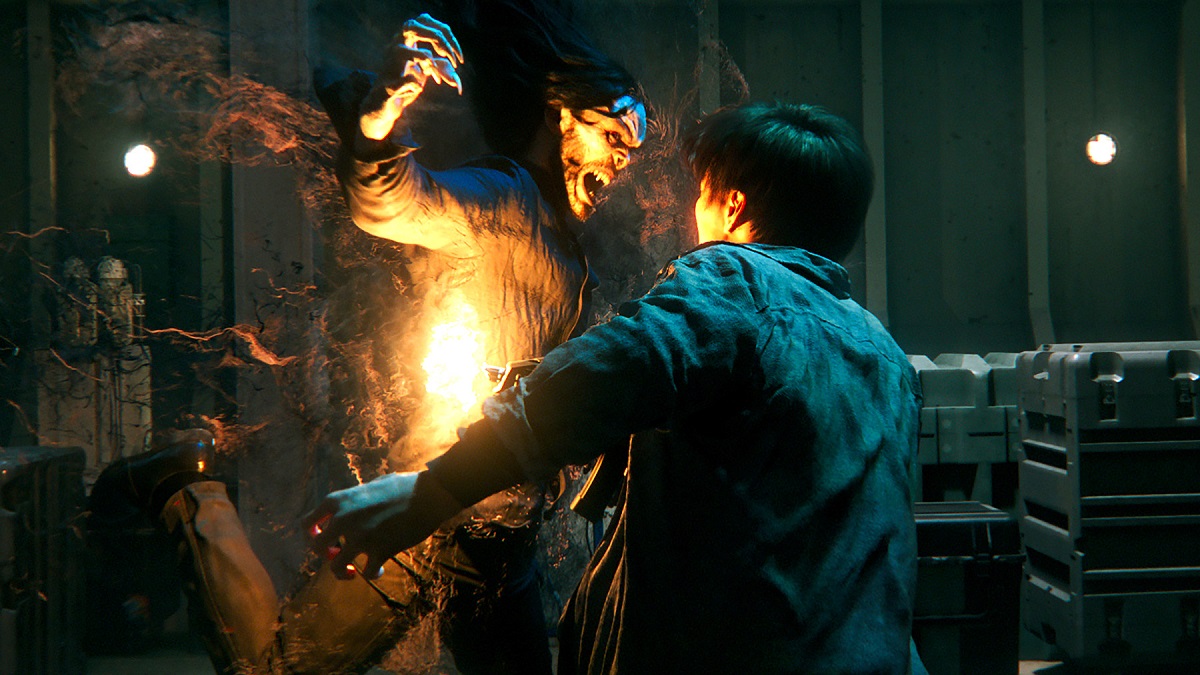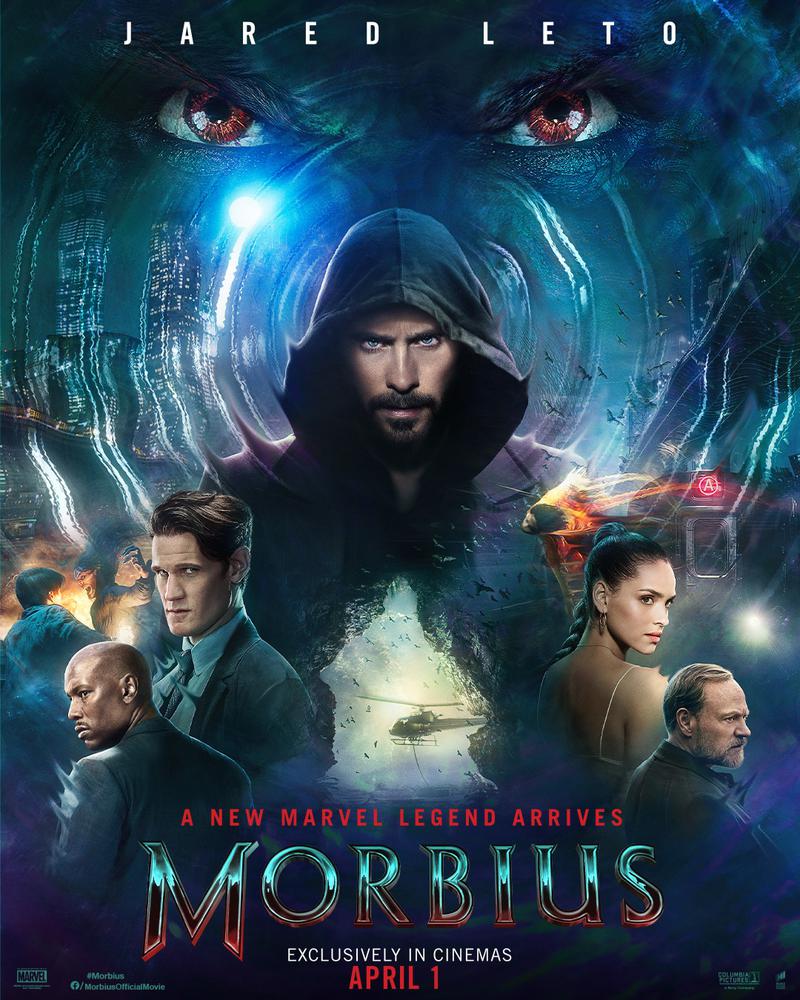You can’t help but admire the boldness on Sony’s part to make the focal point of the Morbius marketing campaign the introduction of “A New Marvel Legend”, when the studio has evidently been aware for quite some time that its been sitting on a disaster, with the movie finally coming to theaters this weekend after being delayed from July 2020.
On top of that, it’s clear the studio have tried their best to improve the end product after the fact, based only on the sheer volume of footage seen in the various teasers, trailer, TV spots, and promos that happens to be conspicuously absent from the theatrical cut. In the end, though, Morbius is about as bland as big budget blockbusters can possibly get, and it’s comfortably the weakest Marvel-branded project to come along in a while.
There is admittedly potential in the premise, but the execution is roughly a million miles wide of the mark, with Morbius misfiring on almost every level. After a brief introductory scene that introduces us to Jared Leto’s medically-minded genius, game-changing creator of artificial blood, afflicted blood disorder patient, and rejector of a Nobel Prize, we flash back to his childhood for a relentlessly tedious exposition dump that’s supposed to serve as backstory and future motivation.
Jared Harris’ Nicholas is the kindly doctor and father figure who inspires young Michael, while we discover the unbreakable bond formed between the future Living Vampire and the child who grows up to be Matt Smith’s Milo. Except his name is actually Lucien, even though nobody ever calls him that again throughout the rest of the running time. Why? Who knows, because it’s never mentioned after the flashback and doesn’t matter.
That’s about the extent of the development Harris and Smith are given, and while the former unsurprisingly flounders in the “wizened mentor” archetype, Smith tries to do the best he can with the thinly-written material. Yes, we are once again in a comic book origin story where the villain is a twisted mirror version of the hero, but at least the actor’s scenery-chewing turn makes it abundantly clear that he knows exactly which kind of film he’s in, so he pitches his performance as such.
After the kind of hokey science that’s par for the course, Dr. Morbius splices human and bat DNA to cure his ailment, and comes out on the other side as a buff vampire who must consume blood to survive. In a hugely fortunate coincidence, he created an artificial substitute so as not to paint him as an evil creature of the night right from the off, but eventually he’ll need the real stuff to survive.
Along the way, Adria Arjona’s Martine Bancroft spectacularly fails the Bechdel test by slipping seamlessly into the one-dimensional love interest/damsel in distress role we’d hoped the superhero genre had moved well past by now, while Tyrese Gibson and Al Rodriguez contribute almost nothing to the story (bar a barrage of painfully unfunny one-liners) as a pair of FBI agents who don’t seem all that eager or enthusiastic about cracking a case that involves dozens of victims being torn apart and drained almost entirely of their blood.
It sums up Leto’s career and reputation in microcosm that he delivers his most grounded and relatable performance in years while headlining a $75 million effects-driven story as a vampiric superhero, and he’s nowhere close to being awful in the lead. However, he plays it a little too straight given the silliness (a lot of it not being deliberate) that seeps out of Morbius‘ every pore, but his soulfully introspective antihero who got exactly what he wanted, but not in the way he was expecting, deserves a much better movie than what he ended up with to make a lasting impression.
On a narrative level, Morbius is chaotic and messy, lurching from one scene to the next without a care in the world or even a second thought for such things as cohesion, well-rounded characters, or even an A-to-B plot that makes the smallest degree of sense or leads to any satisfying resolutions that couldn’t have been predicted by the end of the first act. That’s to be expected when the screenplay hails from Dracula Untold, The Last Witch Hunter, and Gods of Egypt scribes Matt Sazama and Burk Sharpless, so on the plus side, it matches the standards of their previous work.
The visuals should be commended to a certain extent, with the echolocation offering a unique and distinctive hook with which to display Morbius’ powers, while there’s half-hearted attempts at adding some flair to the proceedings when the vampires are flailing around and leaving multicolored trails of mist behind them. That being said, the good doctor almost instantly masters his powers without so much as a training montage or any ‘getting to grips’ moments, setbacks, or obstacles he needs to overcome, so in the end it’s really just splashy window dressing for a horrendous final showdown.
It’s almost as if director Daniel Espinosa has either actively sought (or been told by those above his pay grade) to undercut all of the things that could have made Morbius stand out from the identikit comic book crowd, with any sense of panache or style only being utilized for a fleeting moment or two, before we’re right back to mediocrity again.
Far too many superhero movies devolve into a pixelated shambles in an effort to deliver scope and scale that hasn’t been earned or isn’t justified within the context of the setup, with Morbius one of the most egregious offenders in a long time. Good guy and bad guy are there, that much we can decipher, but the effects are so woefully inconsistent and the lighting so dark that it’s regularly impossible to try and understand, or even see for great stretches, what the hell is supposed to be going on.
We haven’t even mentioned the post-credits scenes yet, which will only serve to make you feel bad about sticking around until the lights come up after subjecting yourself to the woes of Morbius. It’s the nadir of wink-wink Easter Eggs, name-dropping, foreshadowing, and clunky world-building, and genuinely leaves us worried about the long-term future of Sony’s Spider-Man Universe.
Venom and its sequel succeeded largely because an underwhelming story was elevated by the undeniable charisma and 100% commitment to his bonkers performance that Tom Hardy brought to the table. Morbius doesn’t have that, despite the best efforts of several key creatives, and it’s another reminder that a couple of well-received movies doesn’t mean Sony has understood or learned from the mistakes that killed the last attempt to build a shared universe out from Spider-Man.
Bad
'Morbius' is a huge step backwards for Sony's Spider-Man Universe, and the worst Marvel-branded movie to come along in a long time.







